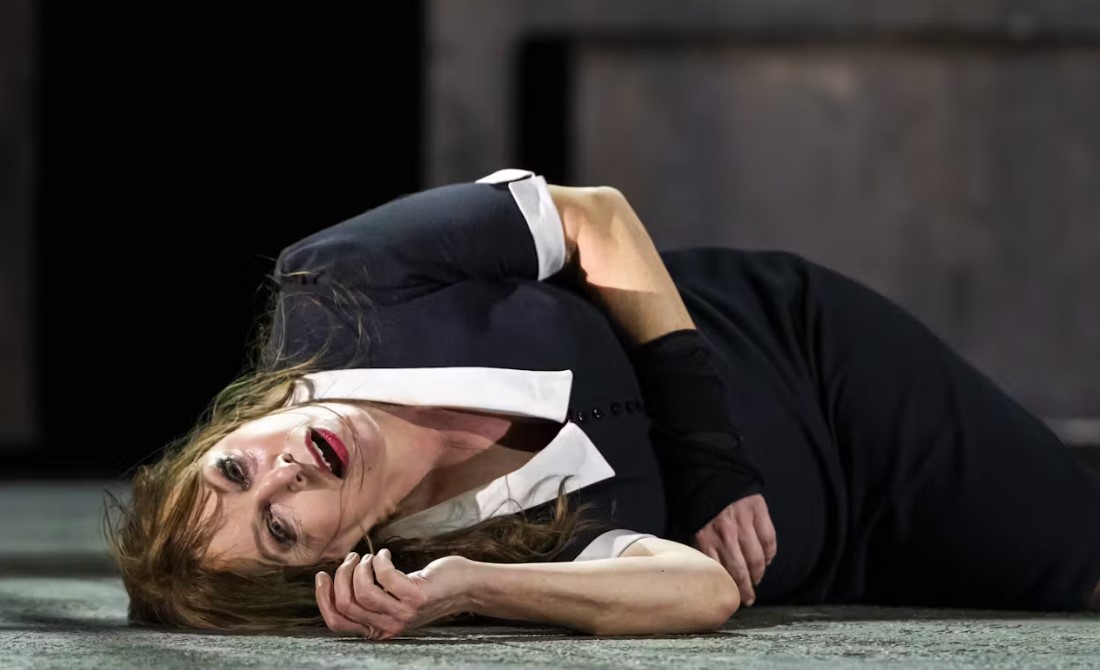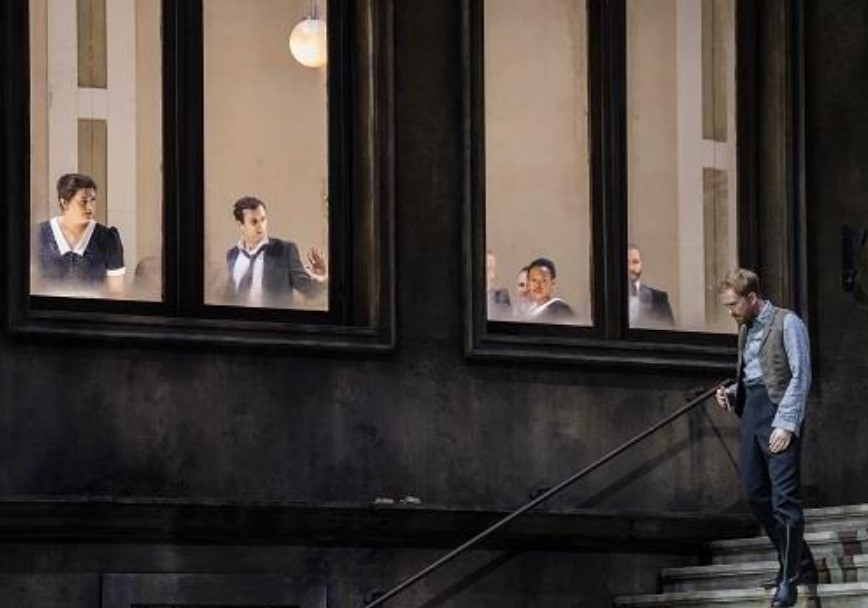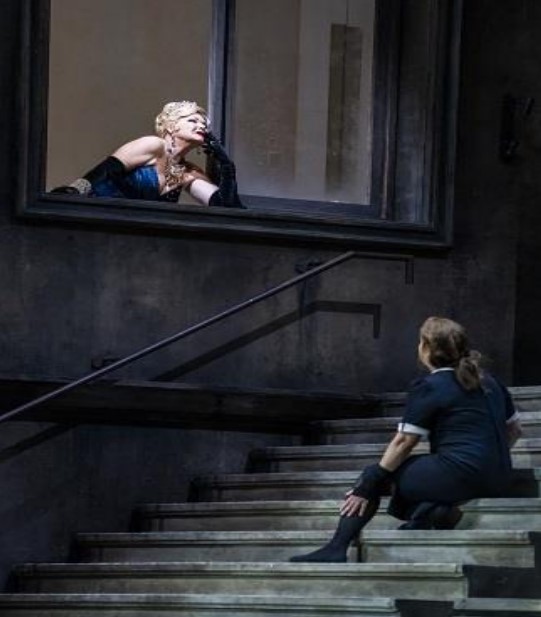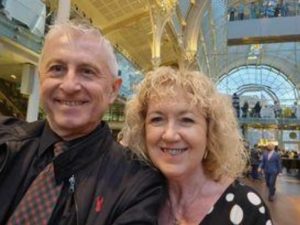
ELEKTRA – A Damaged Personality With A Sense Of Her Own Degradation
ELEKTRA – A damaged personality with a sense of her own degradation
a critique by Nigel Gallimore
Richard Strauss Elektra
January 26, 2024.
7.30 pm ROH, Covent Garden

After forty years of marriage and 43 years together, Sue and I have calculated that the operas
we have seen the most live in the theatre are Die Meistersinger von Nurenburg, Der
Rosenkavalier, Der Ring des Nibelungen and Elektra. To that end, we went to the new
production of Elektra on Friday night with much excitement and anticipation.
Hoffmannsthal began writing his play, Electra, in 1901. It was a Viennese fin-de-siècle, heavily
influenced by Nietzsche’s dark view of Ancient Greece and when Strauss saw the play in 1905
he decided it would be a perfect piece to set to music. However, he decided against it because
in his words, “the subject is so similar in psychological content to Salome that I doubt if I would
have the power to exhaust this subject also,” (Strauss, 1942). Some of Strauss’s doubts about
the piece were probably down to his obsession for contrast between each work, but
Hoffmannsthal saw the potential and finally persuaded Strauss that the subjects were not at
all similar. “Salome is a torrid mixture of purple and violet,” he argued in 1906, “while Electra
is a mixture of dark and bright.” His arguments paid off because after meeting Strauss for
lunch in Vienna on 8th May 1906, he finally persuaded Strauss to go ahead with the project.
One cannot underestimate the importance of Vienna in the whole process, the style of the
play and the location of Vienna itself. It was this, which finally prompted Strauss to commit
Hofmannsthal’s play to music and work himself on and adapting it. Throughout the play, for
example, Hofmannsthal never uses the name Agamemnon. The King remains unnamed by
Hofmannsthal, which Strauss thought might confuse opera audiences (confusing opera plots,
surely not, I hear you all cry in D-minor!). To that end, Strauss wrote into the libretto of his
Elektra the name “Agamemnon” six times in the opening monologue, emphasising it with the
orchestral score playing a fortissimo D-minor motif of four notes of contrapuntal declamation
of Agamemnon. This is mirrored by the household staff, reminding even the most braincell
challenged members of the audience, that Elektra carries out this ritual every day at the same
hour that her father was brutally murdered.
This brings us conveniently to the start of Friday night’s performance at the ROH. This is our
third production at Covent Garden and I assume that Loy’s thinking in setting all the action
within a grubby courtyard in early 1900s Vienna was to exemplify his view that, “the key to
Hofmannsthal is always Vienna.”
So the royal palace of Mycenae is transformed into one of the mansions on the Viennese
Ringstraße boulevard. The single set presents a grubby courtyard at the rear of the palace,
strewn with rubbish, where the maids gather to smoke and deride Elektra and her rituals of
devotion to her dead father. Stone steps lead up to an entrance to the house. Towering
picture windows facilitate a view of the revellers in modern-day evening dress, dancing under
the vibrant glare of electric lights, whilst enjoying the hospitality of the Queen.

This all works, as does having the old servant (Jeremy White) continually looking in the
opposite direction of the action on stage, distancing himself from the awful people to whom
he isforced to serve and pay lip-service. He only becomes a part of and acknowledges anyone
after Oreste has started his murderous rampage through the house. This is brilliant stage
management by Loy. As is the heartbreaking scene, which never fails to bring tears to my
eyes or a lump to my throat, when the music tells us that he has been recognised, but not by
Elektra, and Oreste says to his sister, “die Hunde auf dem Hof erkennen mich,und meine
Schwester nicht?”
Klytemnestra (Karita Mattila) is also realised very effectively, dressed in a gorgeous midnightblue
satin evening gown with a white fur stole, dripping jewels and a sculpted coiffeurrevealing
vulnerability, frustration and fear beneath the public façade.
Mattila is a consummate actress and she proved totally convincing, which enabled one to
forgive any deterioration in her once magnificent voice. She struggled at times to be heard
above the orchestra and from our seats was barely audible as she leaned out of the window
laughing at Elektra, having been informed that Oreste had died. However, I wonder if
audience members further from the orchestra than us would have noticed this. I can’t even
ask Steven Whittles, as we were sitting in similar seats. Anyway, she gave a magnificent
portrayal and was amongst the most beautiful Klytemnestras I have seen, making the match
between her and the much younger Aegisthus credible. This Aegisthus (Charles Workman)
was definitely not just bedding her for the money and power! They made a credible pair and
proved to be genius casting.
I had read many disparaging reviews of Karita Matilla’s performance on stage, all totally
unjustified. She didn’t get anywhere near the cheers of the other two female leads, but her
stage presence was mesmerising and she certainly has a good understanding of the Queen
that Loy wanted us to see and experience.

As always, everything changes with the arrival of Oreste (Lukasz Goliński) who’s clear, rich
voice cut through the orchestra beautifully. The recognition scene contains some of the most
lyrical music in the opera and the scene was realised perfectly. As was the carnage which
followed. It was all riveting, as was the final dance of Elektra who falls dead, centre stage.
In the final moments, Chrysothemis (Sara Jubiak) is desperately calling out her brother’s name
from the window, looking at her dead sister in the courtyard (not trapped and hammering
desperately on the door) while Oreste, obviously traumatised and covered in blood, walks
slowly down the stone steps towards his dead sister as the lights go out.
Nina Stemme (Elektra) withdrew from two performances after opening night due to illness,
but she was back on Friday night firing on all cylinders. She gave a magnificent performance.
I measure my Elektras by Eva Marton, who we have seen in the role on several occasions. She
is still my personal favourite, but Nina Stemme gave her a good run for her money. The
interaction with her mother and sister were totally convincing. Her Elektra is most definitely
a girl twisted through years of unrelenting hatred, resulting in a damaged personality with a
sense of her own degradation. A quite incredible performance.

Sara Jakubiak is undoubtedly the best Chrysothemis I have ever seen. Her voice shone like a
crown jewel and she soared effortlessly above the unforgiving orchestral score. Quite
amazing and possibly earning the largest individual ovation of the evening.
I have to mention Charles Workman (Aegisthus), who made the unforgiving role very
memorable – actually the best and most convincing “snake-in-the grass” toyboy lover of
Klytemnestra I have seen to date.
I also have to give credit to Lukasz Goliński (Oreste) for a very memorable portrayal of a
character who too often just turns up out of the blue and then disappears, almost forgotten.
That certainly didn’t happen last night.
Antonio Papano had vast swathes of the audience shouting out to him, including myself and
Sue, but he took it all in his stride, insisting, as the consummate professional he is, that the
orchestra took the brunt of the cheers. He will be missed by everyone, as ROH regulars like
us and the orchestra love him to bits.
Thank you for everything, Maestro. A true Maestro for me and I love him!
I have read many reviews which say that the star of the show is the ROH orchestra, but when
everything works it is because it is a team effort and last night was no exception. The
orchestra and the conducting were wonderful (perfection, in fact) but the music was just
there as part of the whole, juxtaposed perfectly with the drama on stage.
…..and that, my dear friends and opera lovers, is what makes a perfect night at the opera.
What more can I say?

Nigel Gallimore lectures physics and mathsin London, he is a published author of two novels (a third pending)
and a complete opera fanatic, specialising in Wagner, Mozart and Richard Strauss. Chelsea FC come
somewhere in his passions too!
